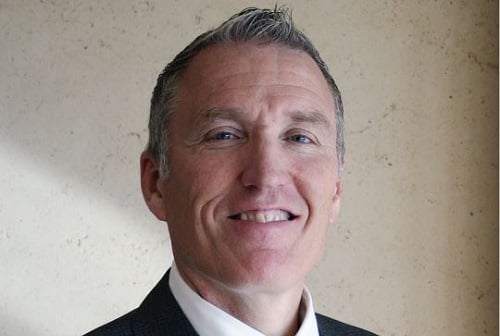Mandeville advisor Blake Williams discusses how he’s protecting clients on the downside without using traditional bonds

While a large part of his job is devoted to the subject of retirement, it wasn’t something Blake Williams took to himself. His own retirement from the investment industry lasted all of three months, before a call from Michael Lee-Chin convinced him to return. Williams’ relationship with the Portland Holdings head stretches back to the late ’70s, including a 14-year stint at Berkshire Securities. As a result, he was confident his style would fit well with Lee-Chin’s latest venture, Mandeville Private Client.
“The biggest thing for me was that I wanted to build something that was unique and more pension-like in style,” Williams says. “In down markets, pension plans tend to handle the downturns better, and that’s probably because of their private offerings. Coming back to Mandeville was a breath of fresh air because at that time there really wasn’t anyone marketing that as part of their investment ideas.”
That was back in 2013; since then, alternative investments have become a much more a common component of investor portfolios. Mandeville has been leading that charge with a company ethos of democratizing investing by providing consumers the opportunity to use investment vehicles that were once the preserve of the institutional space. The ability to bring private debt and equity products to his clients is a major reason Williams allowed himself to be pulled back into the investment world.
“Any bank-owned firm, they tend to stifle anyone who thinks they’re an entrepreneur,” he says. “So you have to buy into their models, and if you don’t do that, they don’t pay you as well. That’s a fact of the industry. At Mandeville, I have autonomy – if I don’t want to buy their products, it’s fine, and there will be no pressure. Here, we add an alternative with private assets, but that’s not something the bank firms want to do.”
Alternative investments do have some limitations, particularly when it comes to liquidity. It’s vital, then, for advisors to present the pros and cons of a product to their client and ensure they have a full understanding of where their money is going.
“If you buy the Portland Income Fund, which is mainly commercial mortgages, you can’t expect to have liquidity,” Williams says. “But you have to make sure the client understands they are in for three years and the lump sum must remain there for that time. It’s a risk to someone who needs liquidity, but you don’t need to have your whole portfolio liquid anyway, and you shouldn’t.”
While alternative offerings are an important part of Williams’ practice, they’re far from the only focus. The equity markets have provided some spectacular returns since the financial crisis – and he believes they’ll continue to do so, despite recent dips.
“I have always been an equity guy, so I’m not the typical advisor who uses bonds,” he says. “How I get around that is through income funds and private products, which offer the same downside protection as bonds. I’m committed to equities, which has hurt me sometimes in down markets, but even retired people need growth.”
In searching for those returns, Williams says investing south of the border will provide the most opportunity, much like it has done over the past decade. Donald Trump has come under plenty of criticism during his time in office, but on tax policy at least, Williams believes he’s on the right track.
“I don’t get involved in talking about politics, but the reality is we have one of the most pro-business US presidents ever,” he says. “I love the US; Canada is a brutal market because we have a socialist prime minister, which is the worst thing for business. If you want to make money, then the US is the place to be – it has the best businesses, and it is where everyone wants to go. You now have between US$9 trillion and $12 trillion dollars being repatriated to the US, which will cause wealth creation like you have never seen before.”



